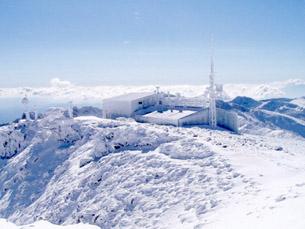
The nature protection organization WWF - Bulgaria is launching a campaign entitled "Subscribe to Nature". The disappearance of wild animals is a series in which we play the main role. In less than one human lifetime, 73% of vertebrates in..
The Embassy of France and the French Cultural Institute brought together scientists to present their experience and the scientific challenges in Antarctica, as well as the fight against climate change. Partners of the event were the..
The Buzludzha Monument will be the set of a Hindi film production. A team of 100 people have arrived in Kazanlak for the filming of "Good Bad Ugly", which stars famous actor Ajith Kumar in the lead role. The film is being shot in..

+359 2 9336 661
